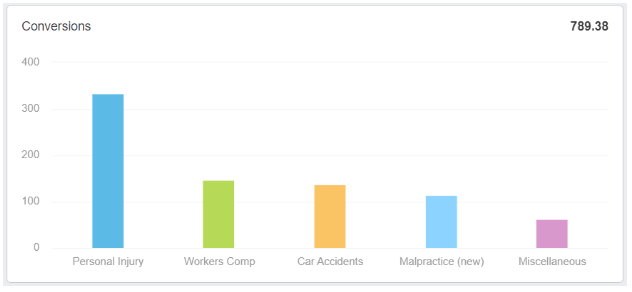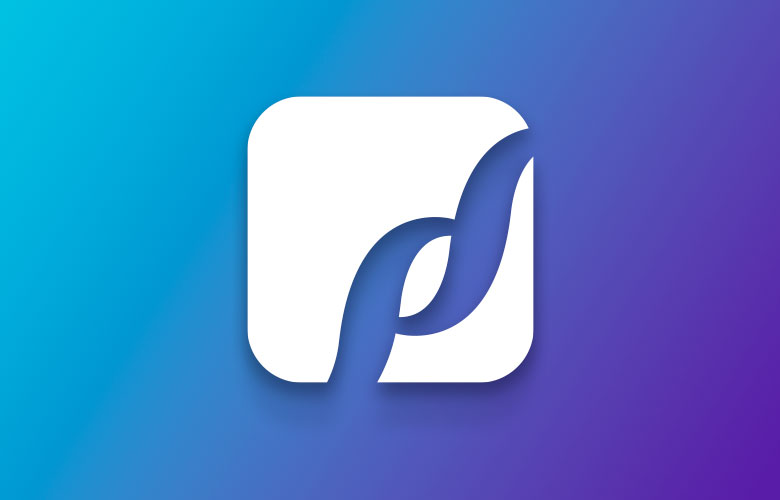The Ultimate Guide for Paid Ads & PPC for Your Law Firm

Why PPC Is Important for Your Law Firm
As a law firm, it is imperative your firm name sits at the top of the search results. Google is a part of everyone’s daily life these days, and people jump right to the search engines the second they have a need for information. By having paid ads, or PPC, your firm has a higher chance of standing out from the rest of your competitors.
With PPC, each campaign can be tweaked to a targeted audience, location, specific days and times, and even by demographic. You know your audience better than anyone to create compelling ads in order to reach your target audience and gain conversions. Using PPC, you can also track those conversions and monthly/yearly ROI. Google Ads gives you the tools you need to see in real time how your paid ads are performing. You can then determine how to steer your ads in the direction of more clicks and conversions. Paid advertising is an important tool for any law firm to utilize.
Intro to Paid Advertising for Your Law Firm
What are PPC and Paid Ads?
Paid, or pay-per-click (PPC), advertising is showing ads on a search engine or website by bidding on a particular keyword or audience that is relevant to your business. Through PPC, advertisers provide the parameters for whom they want to have seen their ads, such as location or a specific phrase, and provide a budget and bid amount for how much they are willing to pay for someone to visit their site. Each time someone performs a search on a platform, such as Google, an auction occurs. The ads for all advertisers targeting that phrase are then ranked and displayed by the search engine, based on the bid and budget provided and the relevancy to the user’s query. When the user clicks on the ad, the advertiser then pays the platform for that click based on the results of the aforementioned auction.

How Law Firms Benefit from PPC
Law firms benefit from PPC because PPC allows for a greater chance at visibility in an ever-growing, competitive field, and by doing so in a controllable, timely, and focused manner. If a firm is not being seen organically on search results, then paid advertising is a way to push toward the top of the page. There are other methods to improve a position organically, but search engine optimization can be a lengthy process that takes months or even years. With PPC, a firm can start ads and be seen at or near the top within minutes. While this comes at a cost, law firms advertising on search engines have complete control over what keywords, locations, and even demographics they want to target and pay for and receive website traffic from.
Types of PPC Ads
There are three main types of paid advertising that can benefit most law firms. These are search, display, and local ads.
- Search: Search ads are the most popular and basic ad type. Parameters such as keywords and location targeting are provided, and the ads will show on search engine results as text with a clickable link that directs to a website or landing page. These ads can also feature images, show clicks to related pages on a website, or display on a map if linked to a business listing on Google.
- Display: Display ads are ads that show on websites or platforms such as YouTube. They are typically image- or video-based, and work on a cost per impression model instead of cost per click like search ads. Rather than keywords, display ads are targeted by audience identifiers.
- Local: Local Services Ads, also known as “Google Screened”, are another type of search ad specific to Google. These ads show an image of the business provider alongside the business name and Google review information. These ads work on a pay per call model, and often display above all other results on searches.
Paid Advertising Budget and Cost
How Much Should Law Firms Spend on Paid Ads?
There is a wide range of budgets and cost when it comes to Paid Ads. Focusing on PPC and the Google search engine, determine what your goals are for your law firm. Do you want to focus on branding or conversions? What cities or counties does your law firm serve? What practice areas convert the best at your firm? How do you stand out from your competition? Each goal will have a slightly different budget based on the direction you want to take your ads.
One of the biggest factors when determining a starting point with budget is your practice area. Personal injury law firms will have a different budget requirement than family law and family law will have a different budget requirement than tax law. The starting budget can be determined by type of law and location. From there, we get down to some additional details.
Conversions are important when deciding on a budget and total cost for paid ads on Google. We like to advise for at least a 2% conversion rate and to ensure at least 1 conversion per day. Your PPC campaign must have enough daily budget to accommodate for competitive bids and clicks that convert.
Being strategic and planning out a budget for PPC isn’t difficult but it does take a little bit of work to get it right. As your PPC campaign runs, you’ll learn how to tweak it to get the results you’re after.

How Personal Injury Firms Approach PPC
Personal injury accounts are the most expensive accounts to run for advertising on Google. Luckily, these law firms have got their process down. The first two things to consider are the types of personal injury cases they want to focus on and then their local or national competitors. After those things are determined, a starting budget can be created. The next few items in this section can help determine how much more budget your firm would need.
Because these budgets are pretty hefty, figuring out your firm’s lead goals is important. As stated previously, a 2% conversion rate is good and getting at least one conversion per day is a great start. A successful campaign, especially for personal injury, should contain separate ad groups which contain specific keyword phrases. For example, within a personal injury campaign, the ad groups could be: car accident, truck accident, motorcycle accident, and so forth. Within those ad groups, all ads and keywords will be directly related to those terms. As a result, incoming traffic will be more relevant and the rate of conversions could be higher.
A law firm’s audience, more specifically their potential audience, is very important to understand. The headlines and ad copy should use a tone that attracts your specific audience. Each firm should be familiar with their audience based on their location and competition. One thing that can help entice your personal injury audience are headlines that read, “Free Consultation “and “No Fees Unless We Win.”
With all of those things combined, personal injury firms (and any other law firm for that matter) can have hugely successful PPC campaigns and increase their conversions on a monthly basis. Time and patience are needed but following these steps can greatly jumpstart your PPC campaign.
Law Firm PPC Best Practices
Best Practices for Law Firm PPC
Best practices for law firm PPC is very similar to the personal injury approach. Here are some very important guidelines to help you have a very successful PPC campaign.
Knowing your geographic area can be one of the most useful things when creating your PPC campaign. Get to know your firm’s location and area if you don’t already. Are you in a major metro area or a small town? Is your city small but your county big? What’s the population where you are and your surrounding areas? Knowing your audience can help you determine budget but also writing ads to cater to your specific audience.
Are there multiple firms in your area who all practice the same type of law? Familiarize yourself with their firm and look them up on sites to help you determine how they are spending their marketing budget. Since PPC campaigns work off of a bidding system, use a tool like SpyFu or iSpionage to see the estimated monthly budget and cost-per-click of your competitors. Doing research ahead of time can greatly help you have an equally or better performing internet marketing campaign.
Make your firm stand out from the rest of your competition. Do you offer something that the competing firms do not? Use your paid ads to highlight the selling points of your firm.
Once you’ve gotten your PPC campaign started and it’s been running for a couple of months, review the days and times your ads get the most traffic. Tweak the bids on the highest and lowest impression days to make the most out of the time your ads are running. You can even eliminate entire days or blocks of time if you don’t want them to run at all. This way your budget can be put to use where it is needed the most.
With these best practices, your firm will have a successful, converting PPC campaign to help you gain clients.
How to Create an Ad That Converts
Getting conversions from ads is the ultimate goal, but how do you achieve that when your firm is in competition with every other firm in your area? It starts with your headline. Catch the audience’s attention by creating a headline that will entice that person to at least read the ad. Next, the actual description of the ad should contain relevant information to the search term used and contain selling points for your firm. If you offer free consultations over the phone, that should be stated. If your client doesn’t pay until they get paid, that should also be included. Think about what your potential clients are looking for when they search for a lawyer in your specific practice area.
Your ads will also want what Google calls “assets.” These are things like call extensions, sitelinks, and callouts. These assets are extra little blurbs and links you can add to your ad to take it to the next level. The call extension is a phone number that displays with the ads for people to be able to reach you immediately. Sitelinks are small descriptions that lead you to very specific pages on your firm’s website. Callouts are things that make your firm stand out. For example, “Free Consultations,” “Serving XYZ Area,” and “Millions Recovered.”
The last thing you need to know to create ads that convert are to use the best practices from this guide. You can create a good strategy for your firm by starting out with the basic steps we’ve outlined for you here and then taking it to the next level as you figure out the nooks and crannies of your PPC campaign.
Types of Paid Ads for Law Firms
Search vs. Display Advertising
There are several major factors differentiating search from display ads. The main differences are in the targeting and format. Where search ads are almost 100% text-based, display ads will include a combination of text, images, and even videos. Search ads also show only on search engine results pages, where display ads show on websites or platforms, such as YouTube, that are relevant to the chosen targeting. Display ads are targeted by audience indicators, like demographics and interests, while search ads are targeted by chosen keywords being searched for within the parameters provided by the advertiser. Display ads are priced on a cost per impression basis instead of cost per click for search ads, which means the costs for traffic are generally lower. The tradeoff with that is that they are far less focused than search ads, which cost more but result in higher-quality site traffic. In general, search ads are the far superior method of advertising, as they allow for total control and tend to have better quality results. Display is best for branding purposes and increasing traffic with less concern for quality.
Google Ads vs. Google Screened
Google offers two types of ads that appear on search engine results: Google Ads and Local Services Ads (also sometimes called “Google Screened”). Both of these ad types are triggered by related keyword searches, but the main differences are in the pricing model and the level of control. With Google Ads, the advertiser pays for every click on an ad. On Local Services Ads, the advertiser only pays when a user calls through the ad. While this sounds better on the surface, the lack of control on Local Services Ads is where the tradeoff occurs. Local Services Ads use categories for targeting instead of specifically chosen keywords like those used for Google Ads. As an example, a law firm practicing in family law but only wanting divorce cases would be able to only have their ads show for divorce-related phrases if using Google Ads. If using Local Services Ads, the same firm would be able to choose divorce as a subcategory of family law, but they would still receive and pay for calls for general family law inquiries. Both types of ads are good ways to increase prominence and can work in conjunction with each other, but, depending on the company goals, one may fit better than the other.
How Can a Law Firm Become “Google Screened”?
Another difference between traditional Google Ads and becoming “Google Screened” with Local Services Ads is the onboarding process. With Google Ads, account creation is nearly instantaneous, and ads can be live as soon as Google is provided with keywords and ad copy. For Local Services Ads, Google requires some verification to prove that a company is A) who they say they are, and B) licensed to perform their advertised services in that location. To do this, Google will ask for proof of state license (bar numbers, in the legal industry), and each lawyer being advertised as a member of the firm will need to individually verify themselves via a background check. Should note that Google Ads accounts also require verification after the fact, but this process is fairly quick and simple if directions are followed.
What Does a Successful PPC Campaign Look Like?
How to Track Leads
Tracking leads is crucial in determining the effectiveness of any paid advertising campaign. Without lead tracking capabilities, all one can know about the campaigns is how much is being spent and how many clicks have been provided. With lead tracking, the business can determine return on investment and make sure they are getting the most out of the budget being spent. There are several methods for tracking leads:
- Platform-provided: With any search engine advertising platform, advertisers can set up tracking for conversions, such as visits to a confirmation page or calls to the number on the website, by adding a snippet of code to the website. The code is provided by the platform.
- Third-party: Providers such as Google Analytics can also be used to track leads. Again, by adding a snippet of code to the website, advertisers can track leads and also gain valuable insights on user behavior at the same time.
- Call tracking: Services like CallRail and others can go a bit further than the analytics-based platforms in providing specific caller information. As with the other methods, this is done via adding code to the website, which will then swap the business number on the site with a tracking number. Specific numbers can also be set up to track things outside of the website, such as calls directly from ads or even a television or billboard marketing campaign.
Top Examples of a Successful PPC Campaign
Personal Injury Lawyers in North Carolina Get 2,000 Leads Under $100 Each
A personal injury law firm in North Carolina received over 2,000 leads in 2023, at a cost per lead under $100. In personal injury, cost per lead can be anywhere from $150 to nearly $1,000 depending on the market and competition, so they have exceeded all expectations there. Additionally, a nearly 30% conversion rate is around five times the industry standard, which speaks to the ads being well targeted and the landing page being effective.
South Florida Family Law Firm Gets Over 300 Phone Calls from Local Service Ads
A family law firm in south Florida, using only Local Service Ads, received over 300 calls in a year. On top of that, they were seen at the top of ad searches for family law-related terms nearly 70% of the time across tens of thousands of searches. These ads proved so effective for the firm that they now have two additional locations running with similarly good results.
Florida Law Firm Doubles Case Volume in a Year
A boutique law firm in north Florida using Google Ads shifted their advertising focus to criminal cases in 2023. The result was they saw their lead volume on criminal cases double from 2022 to 2023, while only increasing spend by half. They have continued to increase their budget for 2024 as a result of this success.
Frequently Asked Questions About Law Firm PPC
How much does PPC cost for law firms?
It really depends on the type of law your firm practices and where you are located.
Do Google ads work for law firms?
Yes, they absolutely do. When the campaign is created using best practices and targeted with the ideal client for a lead in mind, Google ads work in favor of the law firm.
How much should my PPC budget be?
Depending on the type of law your firm practices and the location you are in, this can vary. Personal injury law, for example, will cost more than a firm that practices estate law. Budgets can range from several hundred dollars to tens of thousands depending on these factors and the goals of the campaigns.
What is the best form of advertisement for a lawyer?
Google search ads are great to start out with, but, depending on the goals of your firm and your budget, there are many options out there including remarketing (display) and local service ads.
What is the primary benefit of using PPC advertising for a law firm?
Converted clients and brand awareness. Your ads are in front of the right audience at the right time – the moment they search for your services. Another major benefit to law firms using PPC is direct control over the advertising budget.
How effective are PPC ads?
PPC ads appear at the top of search results and are highly effective. Visitors that arrive at a URL from a PPC campaign are more likely to convert. With an effective strategy in place to measure your ROI (return on investment), any advertising professional can determine your cost-per-lead to know whether your campaign is being successful.
How long should a PPC campaign last?
PPC campaigns can deliver results overnight, in just a few hours, but we recommend a minimum of three months to see the full impact of results.
How many keywords should a PPC campaign have?
You can have an unlimited number of keywords, but our recommendation is to keep a curated list of keywords and close variations around a central theme. Generally, less than 10 base terms and then as many variations of those as needed. If the keyword list gets too bloated, then a new ad group or campaign might need to be created instead. The more actionable and intent-based a keyword is, the better the traffic and conversions you can get. A keyword like “Georgia dog bite attorney” will be more effective for a firm looking for dog bite cases than “Georgia personal injury attorney”, as an example.
Why is PPC so important?
PPC is important for your marketing efforts because it allows you to choose your audience and market to ensure you’re reaching only people who care about the service you offer. The ability to select a goal for your audience and relevant keywords gives you great command over who will see your ad – these are big factors in converting new clients and one of the main benefits of PPC.
Get Started with a PPC Campaign Today
Now that we have given you the ins and outs of PPC and how to have a successful campaign, what are you waiting for? Yes, it can be very overwhelming to start but thankfully we have a team of experts that can get you started. Trust us to implement all of these best practices and more to get your firm the results you’ve been after.
May 10, 2024
Categories:Internet Marketing, Pay-Per-Click (PPC), Ultimate Guides & Best Practices
About Us
Did you know more than 200 clients have worked with PaperStreet for more than 10 years?
Get a Free Website
Analysis and Consultation
Marketing Services



